| |
| |
-
DENT 4410 - Dental Hygiene Needs of the Geriatric Client Credits: (2)
Typically taught:
Fall [Full Sem]
Spring [Full Sem]
An overview of dental health needs of elderly clients. Prerequisite: Consent of instructor and acceptance into the BS/DH major program.
|
| |
-
DENT 4530 - Principles and Application of Evidence - based Dental Hygiene Practice Credits: (2)
Typically taught:
Fall [Full Sem]
Spring [Full Sem]
Emphasis is on the critical appraisal of scientific literature, the development of clinical problem statements and hypotheses and the formulation of a research proposal. Ethical issues inherent in the research process and the identification of appropriate hypothesis testing procedures will also be discussed. Prerequisite: Acceptance into the BS/DH program and completion of WSU Quantitative Literacy requirement.
|
| |
-
DENT 4780 - Baccalaureate Thesis Credits: (3)
Typically taught:
Fall [Full Sem]
Spring [Full Sem]
This course is designed to give dental hygiene students an opportunity to complete a thesis project in partial fulfillment of the requirements for the BS/DH major. Prerequisite: Acceptance into the BS/DH program, completion of the WSU Quantitative Literacy requirement.
|
| |
-
DENT 4800 - Individual Research Credits: (1-3)
Typically taught:
Fall [Full Sem]
Spring [Full Sem]
Special project in a student’s area of interest. May be repeated twice for a maximum of 3 credit hours.
|
| |
-
DENT 4810 - Summer Elective Clinic Credits: (4)
Typically taught:
Fall [Full Sem]
Spring [Full Sem]
Summer [Full Sem]
Summer intensive clinical course which allows the student to set personal achievement goals for clinical techniques and assists them through the process of skill development.
|
| |
-
DENT 4830 - Directed Readings, Projects and Research Credits: (1-3)
Typically taught:
Fall [Full Sem]
Spring [Full Sem]
Summer [Full Sem]
Limited to dental hygiene majors. A maximum of nine hours may be accumulated with this course.
|
| |
-
DENT 4850 - Study Abroad Credits: (1-6)
Variable Title
Typically taught:
Fall [Full Sem]
Spring [Full Sem]
Summer [Full Sem]
The purpose of this course is to provide opportunities for students in health professions to experience a study abroad program that is designed to explore healthcare, culture, and clinical experience. May be repeated 5 times with a maximum of 6 credit hours.
|
| |
-
DENT 4890 - Advanced Community or Clinical Work Experience Credits: (2)
Typically taught:
Fall [Full Sem, Online]
Spring [Full Sem, Online]
Summer [Full Sem, Online]
This course is designed to specifically meet the interests and career goals of the Dental Hygiene Degree-completion student or the student completing the Baccalaureate degree, Dental Hygiene major prior to initial licensure as a dental hygenist. The student who is completing this course as part of their BS degree, initial entry into the profession, will participate in an advanced community or clinical work experiences under the direct supervision of program faculty. The baccalaureate degree completion student must be licensed to practice dental hygiene at the site in which the work experience will take place, have successfully completed an accredited dental hygiene program, or have a work experience site that does not have direct patient care as its community role. Prerequisite: Acceptance into the BS/DH Program and consent of the instructor.
|
| |
-
DENT 4920 - Short Courses, Workshops, Institutes and Special Programs Credits: (1-4)
Typically taught:
Spring [Full Sem]
Summer [Full Sem]
Consult the semester class schedule for the current offering under this number. The specific title and credit authorized will appear on the student transcript. May be repeated 5 times with a maximum of 6 credit hours.
|
| |
-
DENT 4990 - Seminar Credits: (1-2)
Typically taught:
Fall [Full Sem]
Spring [Full Sem]
Summer [Full Sem]
Current concepts in dental hygiene for baccalaureate level dental hygiene students. May be repeated once for a maximum of 2 credit hours.
|
| |
-
DET 1010 - Introduction to Engineering & Technical Design (Solidworks) Credits: (3)
Typically taught:
Fall [Full Sem]
Spring [Full Sem]
An introductory course to explore engineering and technical design solutions using critical thinking in Science, Technology, Engineering and Mathematics (STEM). Learning modules include; The Engineering Design Process & Professions, Sketching & Documentation, Design Measuring, Introduction to CAD & Geometric Constraints, Design Visualization, Orthographic Projection & Multi-View Drawings, Fasteners, Assembly Drawings, Dimensioning, Tolerancing, Final Team Design Projects, and Final Review & Assessment.
|
| |
-
DET 1040 - Introduction to Residential Architecture (AutoCAD) Credits: (3)
Typically taught:
Fall [Full Sem]
Spring [Full Sem]
An introductory course in residential architecture to apply drafting standards & terminology using CAD/BIM technology to prepare plans for the construction industry. Topics include; Architectural Related Careers; Design Process, Construction Procedures & Prints; Conventions & Procedures; 2D Sketching; Architectural Symbols; Floor Plans; Foundation Plans; Wall, Stair & Cross Sections; Roof Plans; Elevation Plans; Site Plans; and Electrical Plans. (AutoCAD)
|
| |
-
DET 1160 - Geometric Dimensioning & Tolerancing Using 3D CAD Credits: (3)
Typically taught:
Fall [Full Sem]
Spring [Full Sem]
The use of CAD to create industrial level production working drawings. Includes the latest ASME Y14.5 standards for Geometric Dimensioning & Tolerancing. Topics of discussion will include: dimensions, fits, tolerances, surface finishes, symbols for welding, piping, machined elements/processes and sheet metal flat patterns. Prerequisite: DET 1010 .
|
| |
-
DET 1350 - Residential Architectural Design Credits: (3)
Typically taught:
Fall [Full Sem]
Spring [Full Sem]
The study of residential and light commercial (Type IV and V buildings) architectural design and construction documents. Covers procedures used in developing residential plans using 2D CAD. Includes architectural design and drafting standards, conventions, procedures and current building code requirements of the International Residential Code (IRC) and International Energy Conservation Code (IECC). Prerequisite: DET 1040 .
|
| |
-
DET 2000 - Introduction to Commercial Architecture & BIM (Revit) Credits: (3)
Typically taught:
Fall [Full Sem]
Spring [Full Sem]
The study of commercial architectural (Type I, II and III buildings) construction documents and an introduction to Building Information Modeling (BIM). Covers procedures used in developing commercial plans using 3D CAD to create a building information model that uses integrated design between architecture, structure, mechanical, electrical, and plumbing (MEP). Includes commercial architectural drafting standards, design procedures, and building code requirements including the latest release of the International Building Code (IBC) and Americans with Disabilities Act (ADA) guidelines. Software applications used to develop commercial architectural designs using BIM will be explored. (Revit)
|
| |
-
DET 2460 - Product Design Fundamentals Using 3D CAD Credits: (3)
Typically taught:
Fall [Full Sem]
Spring [Full Sem]
Product Design is the creative process of applying scientific and mathematical principles, experience, and judgment to the development of the solution of a technical product or system to meet a specific need. Turning ideas into design will incorporate problem identification, market research and brainstorming possible solutions, develop detailed part and assembly drawings, implementation, and evaluation. Sketching, gears/cams/shafts, advanced GD&T, tolerance build-up, tolerances for assemblies, introduction to rapid prototyping, and CNC design for manufacturing concepts will be presented. Advanced 3-D modeling software applications will include: library of parts, assembly constraints, motion constraints, drive constraints, and adaptive design. Three lectures per week. Three lectures per week. Prerequisite: DET 1160 .
|
| |
-
DET 2650 - Product Design & Development Credits: (3)
Typically taught:
Spring [Full Sem]
Uses CAD to lay out advanced production drawings and design. Uses the Machinery’s Handbook, ANSI standards, geometric dimensioning and tolerances and manufacturer’s reference materials. Supports the design and drafting required for senior project. Prerequisite: DET 2460 .
|
| |
-
DET 2660 - Architectural Structural Design & Detailing Credits: (3)
Typically taught:
Spring [Full Sem]
An analysis of the structural behavior of buildings and structures. A study of common construction material properties and their connections under varying load conditions including: wood, steel, and concrete. Both 2D and 3D CAD are used to create residential and commercial engineered construction documents. Prerequisite: MATH 1050 and DET 2000 .
|
| |
-
DET 2830 - Directed Readings Credits: (1-3)
Typically taught:
Spring [Full Sem]
Directed readings in Design Engineering Technology including product design and development and architectural areas. Must have department approval. Can be taken for 1-3 credit hours twice for a maximum of 6 credits.
|
| |
-
DET 2890 - Cooperative Work Experience Credits: (1-3)
Typically taught:
Fall [Full Sem]
Spring [Full Sem]
Open to all advanced students in Design Engineering Technology. Department approval required before registration. Provides academic credit for on-the-job experience. Grade and amount of credit will be determined by the department. Can be taken for 1-3 credit hours twice for a maximum of 6 credits.
|
| |
-
DET 2920 - Short Courses, Workshops, Institutes and Special Programs Credits: (1-4)
Typically taught:
Spring [Full Sem]
Consult the semester class schedule for the current offering under this number. The specific title and credit authorized will appear on the student transcript. May be repeated 3 times.
|
| |
-
DET 3000 - Green Building Methods & Certifications Credits: (3)
Typically taught:
Fall [Full Sem]
An analysis of sustainability in the green built environment including certifications such as LEED, Energy Star and the National Green Building Standard. Course discussions will include; What is Green Building and Why Does it Make Sense?; Structural Systems; Exterior Finishes; Interior Systems; Mechanical Systems; LEED Green Associate (United States Green Building Council) and Certified Green Professional (National Association of Home Builders) Exam preparation. Prerequisite: DET 2000 .
|
| |
-
DET 3100 - Tool Design Credits: (3)
Typically taught:
Fall [Full Sem]
Tool design principals used for work piece control in manufacturing and production. Topics include responsibilities of a tool designer, the design process, economics of design, tooling materials, and tool drawings and specifications. Other topics will include jigs, fixtures, gages, dies and tooling required by specialized manufacturing processes. Prerequisite: MFET 1210 , DET 2460 , and MATH 1080 (or MATH 1050 and MATH 1060 ).
|
| |
-
DET 3300 - Applied Kinematic Analysis Credits: (3)
Typically taught:
Spring [Full Sem]
Graphical representation of the motion of bodies without reference to the forces that cause the motion. Devices will be modeled and the limits of movement of components defined so that overall machine design can be animated and analyzed. Prerequisite: MFET 2300 .
|
| |
-
DET 3400 - Rendering Basics (Photoshop/3ds Max) Credits: (3)
Typically taught:
Fall [Full Sem]
This course introduces students to the basic tools and concepts used in Adobe Photoshop and 3ds Max. Photoshop instruction includes using layers, image editing using selection tools, filtering, and touching up a 3D render. 3ds Max instruction includes importing models, adding materials, lighting a scene, and creating a basic animation. Prerequisite: DET 2000 .
|
| |
-
DET 3460 - Parametric Design Graphics Credits: (3)
Typically taught:
Spring [Full Sem]
An advanced design graphics course using state-of-the-art parametric modeling software. Topics include: parametric modeling fundamentals, constructive solid geometry concepts, model history, parent/child relationships, parametric constraints & relations, datum features, symmetrical features, 3D construction tools, advanced modeling tools, and assembly modeling. Prerequisite: DET 1010 and WEB 1700 .
|
| |
-
DET 3470 - Introduction to CATIA V5 Credits: (3)
Typically taught:
Fall [Full Sem]
Use of parametric 3D modeling software to prepare engineering documentation and model analysis for the automotive and aerospace manufacturing industries. Students will complete a series of laboratory assignments and term projects in an open lab environment. Prerequisite: DET 1160 .
|
| |
-
DET 4350 - Virtual Design & Construction Applications (Revit/Navisworks) Credits: (3)
Typically taught:
Fall [Full Sem]
An advanced BIM course dealing with Virtual Design & Construction Applications. Topics Include; Integrated Project Delivery; Model Integration and Management; Identifying and Resolving Model Clashes; Scheduling and 4D Simulation; Presenting the Project Model; Modeling for Construction; 4D simulation and Construction Planning; Model-Based Estimating and Quantity Takeoff; Using BIM for Fabrication; Using BIM for Operations and Facilities Management. Prerequisite: DET 2000 , DET 2660 , DET 3000 .
|
| |
-
DET 4400 - Animation Basics (3ds Max) Credits: (3)
Typically taught:
Spring [Full Sem]
This course is a continuation of DET 3400. An in-depth look into 3ds Max focusing more on photorealism and animation. Students will learn how to take models created in other programs learned throughout the DET program into 3ds Max and bring them to life. Video editing is covered to allow students to create professional animations and videos. Prerequisite: DET 3400 .
|
| |
-
DET 4470 - Advanced CATIA V5 Credits: (3)
Typically taught:
Spring [Full Sem]
An advanced 3D CAD course featuring 3-D parametric modeling using commercially available software. Studies in parametric design and design intent, applying surfaces, rendering, and creating animated presentations for the automotive and aerospace industries. Prerequisite: DET 3470 .
|
| |
-
DET 4500 - Hydraulic and Pneumatic Applications Credits: (3)
Typically taught:
Spring [Full Sem]
Examines the components of hydraulic and pneumatic systems, including a detailed study of each type of system and the integration of all components required for machine design. The symbols used to document hydraulic and pneumatic systems and the selection of components from vendor catalogs will be included in the detailing of complete machines. Prerequisite: MET 3400 .
|
| |
-
DET 4600 - Senior Project I (Design) Credits: (2)
Typically taught:
Fall [Full Sem]
Spring [Full Sem]
A Capstone project spanning two consecutive semesters. This semester concentrates on documenting the design solution. The project includes application of skills, knowledge, techniques and concepts to design and manufacture or construct a project. Emphasis placed on integrated project management including preparation of drawings, creation of presentations, project organization, control, and documentation. Prerequisite: Senior Project Application form, senior standing, approval of the department, and Associates Degree in DET or equivalent. (A student must apply for senior project one semester before the start of the senior project.) Co-Requisite: MFET 4610 . Cross-listed with MFET 4610L .
|
| |
-
DET 4610 - Senior Project II (Build) Credits: (2)
Typically taught:
Fall [Full Sem]
Spring [Full Sem]
A Capstone project spanning two consecutive semesters. This semester concentrates on manufacturing or building the design solution. The project includes application of skills, knowledge, techniques and concepts to design and manufacture or construct a project. Emphasis placed on integrated project management including preparation of drawings, creation of presentations, project organization, control, and documentation. Prerequisite: DET 4600 . Cross-listed with: MFET 4620L .
|
| |
-
DET 4830 - Directed Readings Credits: (1-3)
Typically taught:
Fall [Full Sem]
Spring [Full Sem]
Directed readings in Design Engineering Technology including product design and development and architectural areas. Must have department approval. Can be taken for 1-3 credit hours twice for a maximum of 6 credits.
|
| |
-
DET 4890 - Cooperative Work Experience Credits: (1-3)
Typically taught:
Fall [Full Sem]
Spring [Full Sem]
Open to all advanced students in Design Engineering Technology. Department approval required before registration. Provides academic credit for on-the-job experience. Grade and amount of credit will be determined by the department. Can be taken for 1-3 credit hours twice for a maximum of 6 credits.
|
| |
-
DET 4920 - Short Courses, Workshops, Institutes and Special Programs Credits: (1-4)
Typically taught:
Summer [Full Sem]
Consult the semester class schedule for the current offering under this number. The specific title and credit authorized will appear on the student transcript. May be repeated 3 times.
|
| |
-
DMS 4110 - Sonography Principles & Instrumentation Credits: (3)
Typically taught:
Spring [Full Sem]
Elementary principles, propagation through tissues, transducers, pulse echo principles and instruments, images, storage and display, Doppler, image features and artifacts, bioeffects, and safety.
|
| |
-
DMS 4120 - Quality Assurance Credits: (3)
Typically taught:
Summer [Full Sem]
Developing, analyzing and evaluating a quality assurance program.
|
| |
-
DMS 4210 - Cardiac Sonography I Credits: (3)
Typically taught:
Fall [Full Sem]
Concepts in cardiac sonographic scanning technique and protocol to produce and evaluate diagnostic images.
|
| |
-
DMS 4220 - Cardiac Sonography II Credits: (3)
Typically taught:
Spring [Full Sem]
Continuation of 4203.
|
| |
-
DMS 4230 - Cardiac Sonography III Credits: (3)
Typically taught:
Summer [Full Sem]
Continuation of DMS 4220 .
|
| |
-
DMS 4310 - Abdominal Sonography Credits: (3)
Typically taught:
Fall [Full Sem]
Concepts in abdominal intraperitoneal and retroperitoneal sonographic scanning technique and protocol to produce and evaluate diagnostic images in the clinical setting.
|
| |
-
DMS 4320 - Superficial Structure Sonography Credits: (1)
Typically taught:
Fall [Full Sem]
Concepts in superficial structure sonographic scanning technique and protocol to produce and evaluate diagnostic images in the clinical setting.
|
| |
-
DMS 4330 - Gynecologic Sonography Credits: (1)
Typically taught:
Spring [Full Sem]
Concepts in gynecologic sonographic scanning technique and protocol to produce and evaluate diagnostic images.
|
| |
-
DMS 4340 - Obstetric Sonography Credits: (3)
Typically taught:
Spring [Full Sem]
Concepts in obstetric sonographic scanning technique and protocol to produce and evaluate diagnostic images.
|
| |
-
DMS 4410 - Vascular Sonography I Credits: (2)
Typically taught:
Fall [Full Sem]
Concepts in vascular sonographic scanning technique and protocol to produce and evaluate diagnostic images.
|
| |
-
DMS 4420 - Vascular Sonography II Credits: (3)
Typically taught:
Spring [Full Sem]
Continuation of DMS 4410 .
|
| |
-
DMS 4510 - Breast Sonography Credits: (1)
Typically taught:
Spring [Full Sem]
Concepts in breast sonographic scanning technique and protocol to produce and evaluate diagnostic images.
|
| |
-
DMS 4610 - Cardiac Laboratory Credits: (1)
Typically taught:
Fall [Full Sem]
Patient position and instruction, transducer selection and anatomic placement, scanning protocol, and image quality are practiced and reviewed for cardiac sonographic examinations.
|
| |
-
DMS 4620 - Medical Laboratory Credits: (1)
Typically taught:
Fall [Full Sem]
Patient position and instruction, transducer selection and anatomic placement, scanning protocol, and image quality are practiced and reviewed for medical sonographic examinations.
|
| |
-
DMS 4630 - Vascular Laboratory Credits: (1)
Typically taught:
Fall [Full Sem]
Patient position and instrumentation, transducer selection and anatomic placement, scanning protocol, and image quality are practiced for vascular sonographic examinations.
|
| |
-
DMS 4801 - Individualized Research Credits: (1-3)
Typically taught:
Fall [Full Sem]
Spring [Full Sem]
Summer [Full Sem]
Contract with faculty advisor required. May be repeated twice with a maximum of 3 credit hours.
|
| |
-
DMS 4811 - Cardiac Clinical I Credits: (3)
Typically taught:
Spring [Full Sem]
A minimum of 24 hours per week in an active diagnostic cardiac sonography department.
|
| |
-
DMS 4812 - Cardiac Clinical II Credits: (3)
Typically taught:
Summer [Full Sem]
Continuation of DMS 4811 .
|
| |
-
DMS 4813 - Cardiac Clinical III Credits: (3)
Typically taught:
Fall [Full Sem]
Continuation of DMS 4812 .
|
| |
-
DMS 4821 - Medical Clinical I Credits: (3)
Typically taught:
Spring [Full Sem]
A minimum of 24 hours per week in an active diagnostic medical sonography department.
|
| |
-
DMS 4822 - Medical Clinical II Credits: (3)
Typically taught:
Summer [Full Sem]
Continuation of DMS 4821 .
|
| |
-
DMS 4823 - Medical Clinical III Credits: (3)
Typically taught:
Fall [Full Sem]
Continuation of DMS 4822 .
|
| |
-
DMS 4831 - Vascular Clinical I Credits: (3)
Typically taught:
Fall [Full Sem]
A minimum of 24 hours per week in an active diagnostic vascular sonography department.
|
| |
-
DMS 4832 - Vascular Clinical II Credits: (3)
Typically taught:
Spring [Full Sem]
Continuation of DMS 4831 .
|
| |
-
DMS 4833 - Vascular Clinical III Credits: (3)
Typically taught:
Summer [Full Sem]
Continuation of DMS 4832 .
|
| |
-
DMS 4841 - Breast Clinical Credits: (3)
Typically taught:
Spring [Full Sem]
A minimum of 24 hours per week performing breast sonography examinations. Prerequisite: DMS 4510 Breast Sonography.
|
| |
-
DMS 4911 - Cardiac Comprehensive Review Credits: (1)
Typically taught:
Fall [Full Sem]
Review and requirements for advanced responsibilities of the cardiac sonographer.
|
| |
-
DMS 4912 - Medical Comprehensive Review Credits: (2)
Typically taught:
Fall [Full Sem]
Review and requirements for advanced responsibilities of the medical sonographer.
|
| |
-
DMS 4913 - Vascular Comprehensive Review Credits: (1)
Typically taught:
Summer [Full Sem]
Review and requirements for advanced responsibilities of the vascular sonographer.
|
| |
-
DMS 4921 - Workshops, Conferences and Telecourses Credits: (1-3)
May be repeated twice with a maximum of 3 credit hours.
|
| |
-
ECE 1000 - Introduction to Electrical Engineering Credits: (2)
Typically taught:
Fall [Full Sem]
Spring [Full Sem]
An introductory course to Electrical & Computer Engineering topics including electronic terms, numbering systems, software tools, and documentation practices. College algebra and trigonometry are strongly recommended.
 
|
| |
-
ECE 1270 - Introduction to Electrical Circuits Credits: (4)
Typically taught:
Fall [Full Sem]
The basics of analog circuits as an introduction to Electrical Engineering. Concepts of voltage, current, power, resistance capacitance and inductance. Circuit analysis techniques such as Kirchhoff’s Laws, node voltages, and mesh currents. Thevenin’s and Norton’s equivalent circuits, sinusoidal steady state and phasors. Lecture and lab combination. Prerequisite: MATH 1210 .
 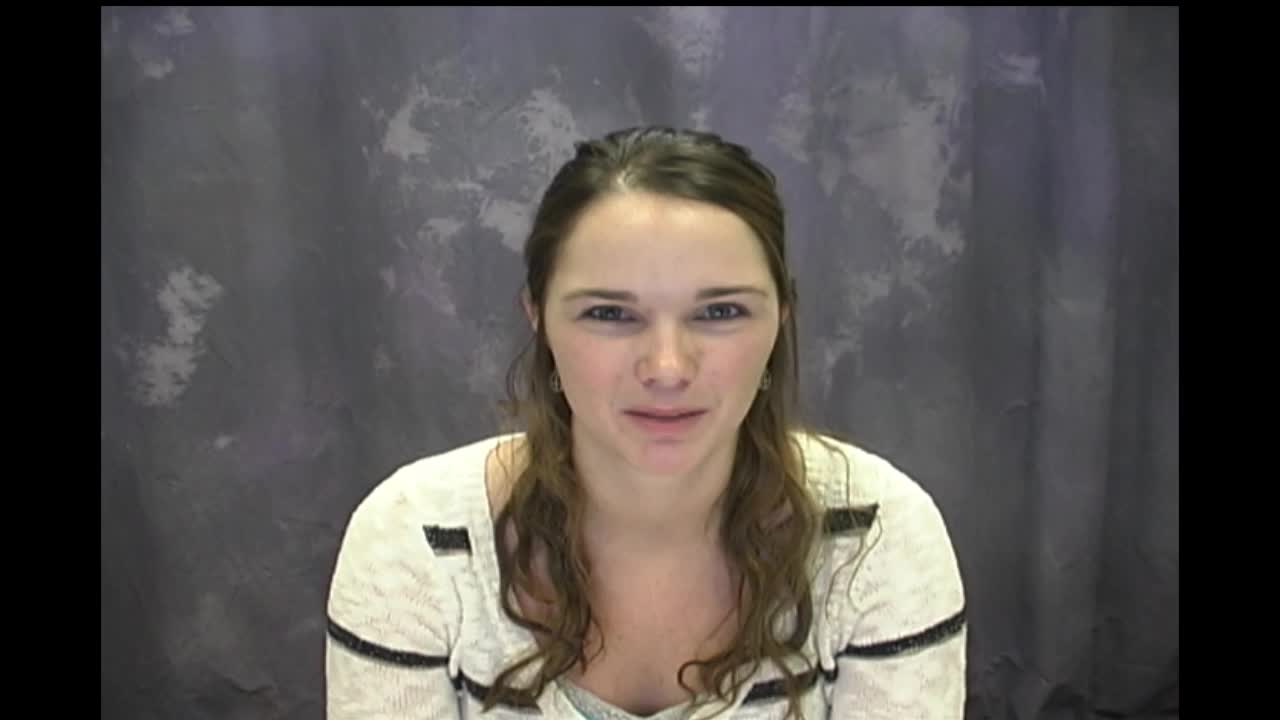
|
| |
-
ECE 2260 - Fundamentals of Electrical Circuits Credits: (4)
Typically taught:
Spring [Full Sem]
Fundamental electric-circuit techniques including: time domain transient responses for 1st and 2nd order circuits, Laplace transforms, Fourier series, and filters. Lecture and lab combination. Prerequisite: ECE 1270 and MATH 1220 .
 
|
| |
-
ECE 2700 - Digital Circuits Credits: (4)
Typically taught:
Fall [Full Sem]
Spring [Full Sem]
An introduction to digital electronics, integrated circuits, numbering systems, Boolean algebra, gates, flip-flops, multiplexers, sequential circuits, combinational circuits, and computer architecture. Introduction to hardware description language and programmable logic devices. Lecture and lab combination. Laboratory activities to include the design, construction, analysis, and measurement of basic digital systems. Prerequisite: ECE 1000 or ENGR 1000 . May be taken concurrently. Co-Requisite: (Recommend) CS 2250 or CS 1410 .
 
|
| |
-
ECE 3000 - Engineering Seminar Credits: (1)
Typically taught:
Fall [Full Sem]
An engineering seminar course designed to prepare the student for professional engineering employment. Topics to include resumes, hiring criteria, interviewing techniques, engineering ethics, professional and societal responsibilities, lifelong learning, diversity, creative problem solving, goals, quality, timeliness, and continuous improvement. The students will research related topics and write a paper. Prerequisite: ECE 1270 .
 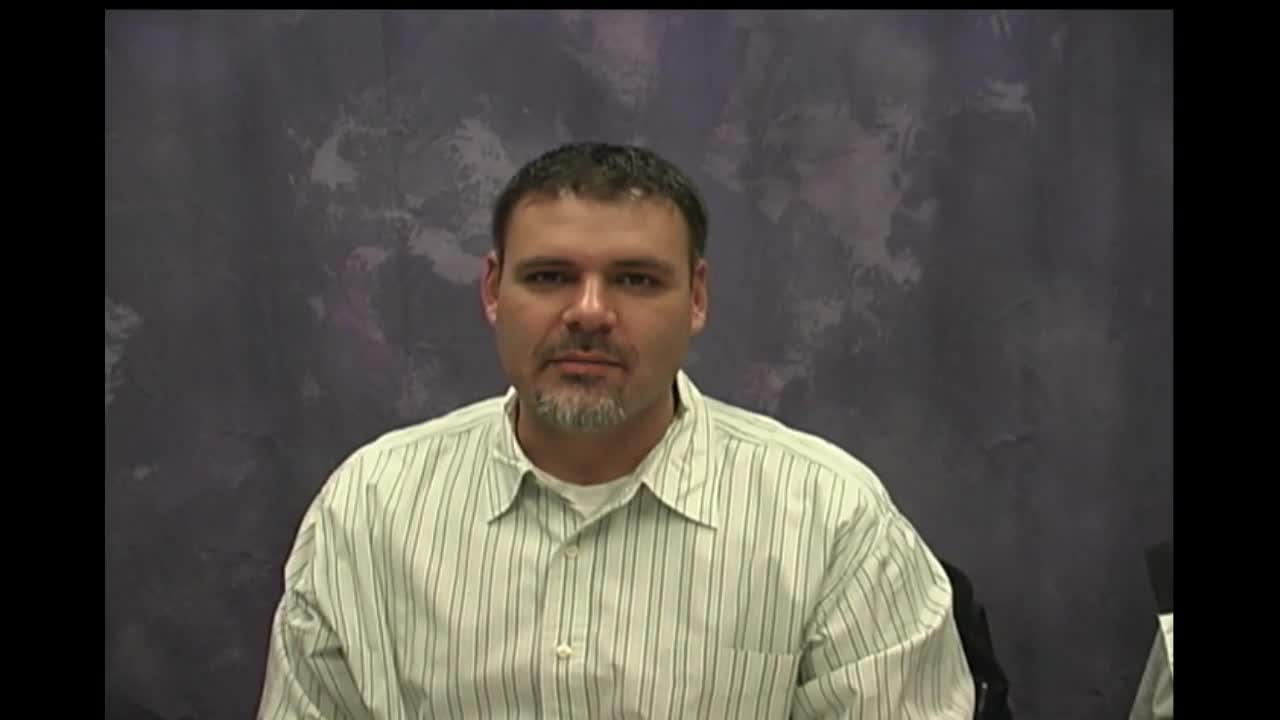
|
| |
-
ECE 3110 - Microelectronics I Credits: (4)
Typically taught:
Fall [Full Sem]
Fundamental semiconductor device characteristics including diodes, MOSFETs and bipolar transistors; small and large signal characteristics and design of linear circuits. Lecture and lab combination. Laboratory activities to include the design, construction, computer simulation, and analysis of semiconductor circuits, amplifiers and power supplies. Prerequisite: ECE 2260 .
 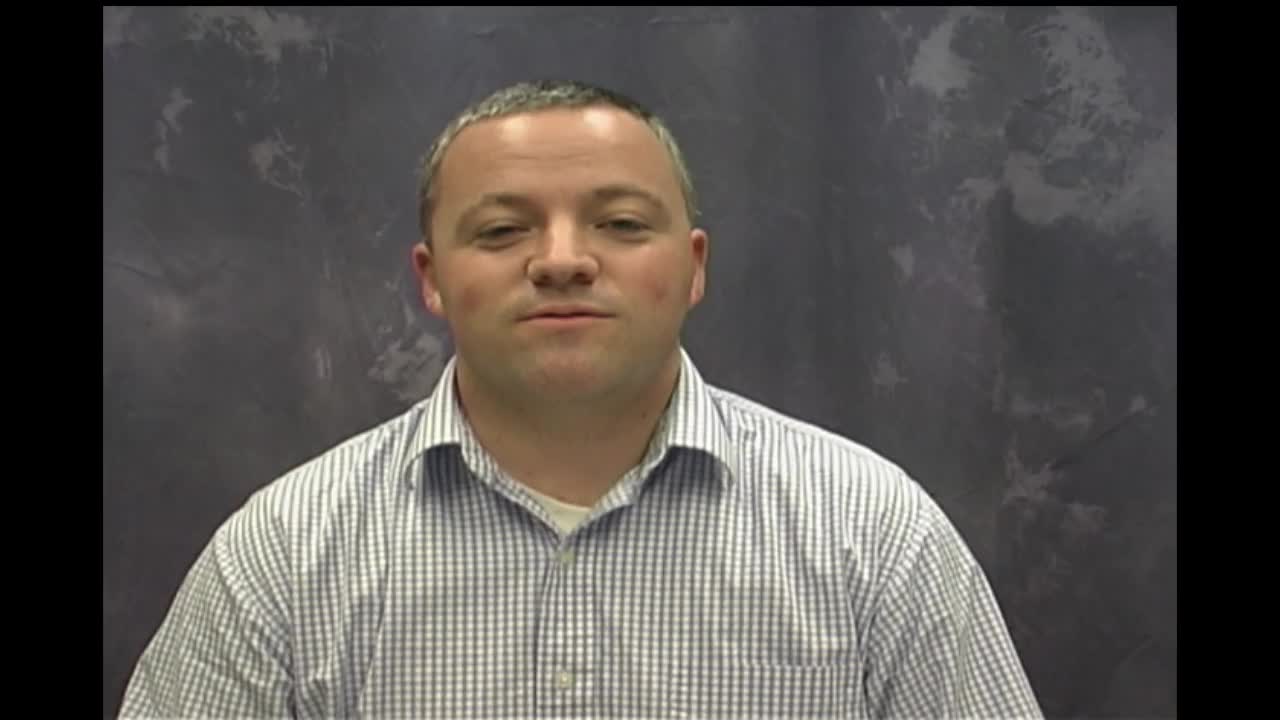
|
| |
-
ECE 3120 - Microelectronics II Credits: (4)
Typically taught:
Spring [Full Sem]
Intermediate topics related to microelectronics including differential and multistage amplifiers, frequency response, feedback systems, power amplifiers, filters, and signal generation. Lecture and lab combination. Laboratory activities to include the design, construction, computer simulation, and analysis of filters and advanced circuits. Prerequisite: ECE 3110 .
 
|
| |
-
ECE 3210 - Signals and Systems Credits: (4)
Typically taught:
Fall [Full Sem]
Topics related to the analysis of linear time invariant continuous and discrete systems and signal transformations, convolution, frequency spectra, Laplace transforms, Z transforms, and fast Fourier transforms. Lecture and lab combination. Laboratory activities to include the computer simulation, analysis, and numerical modeling of signals and systems. Prerequisite: ECE 2260 and MATH 2250 or MATH 2270 and MATH 2280 .
 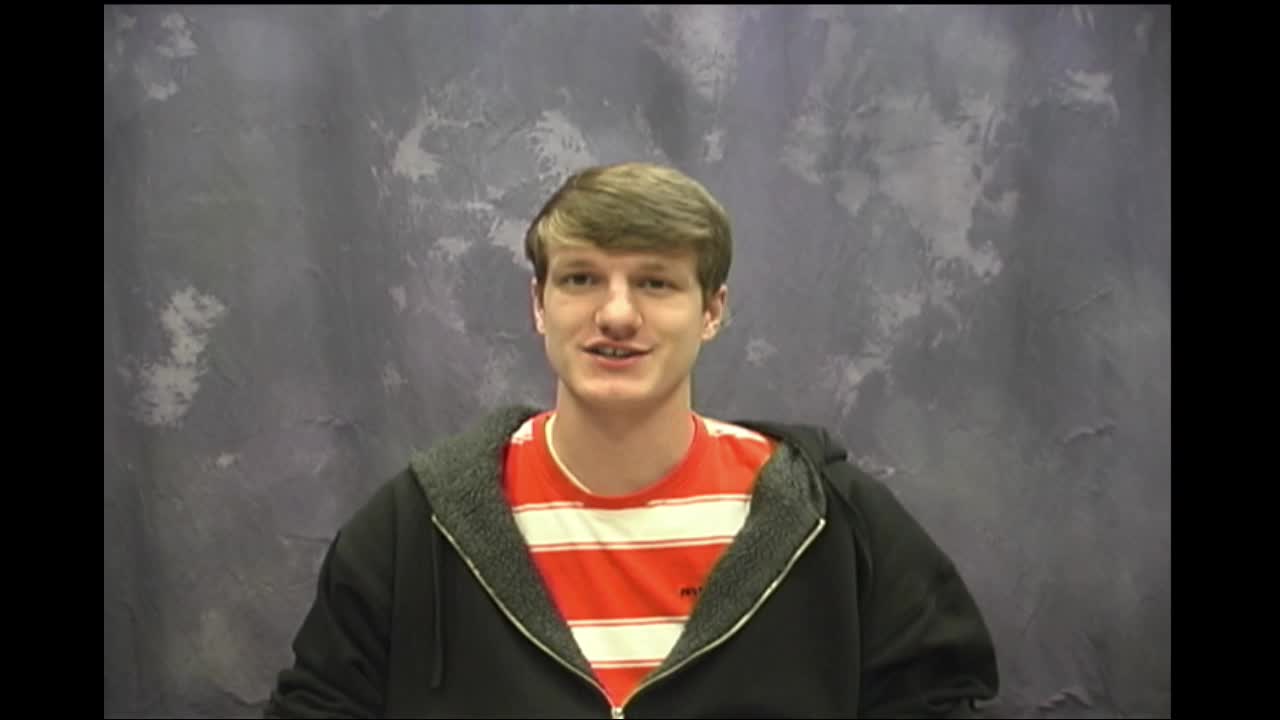
|
| |
-
ECE 3310 - Electromagnetics I Credits: (4)
Typically taught:
Spring [Full Sem]
An introduction to electrostatics, magnetostatics and Maxwell’s equations with specific applications to wave propagation and transmission line theory. Lecture and lab combination. Laboratory activities to include the design, construction, and analysis of RF radar subsystems. Prerequisite: MATH 2210 , PHYS 2220 , and ECE 2260 .
 
|
| |
-
ECE 3610 - Digital Systems Credits: (4)
Typically taught:
Fall [Full Sem]
Introduction to microprocessor architecture, arithmetic logic units, memory systems, input/output interfaces, peripheral devices, and communication. Lecture and lab combination. Laboratory activities to include the programming and operation of microprocessor circuits. Prerequisite: ECE 2700 and CS 2250 or CS 1410 .
 
|
| |
-
ECE 3710 - Embedded Systems Credits: (4)
Typically taught:
Spring [Full Sem]
Design and implementation of a microcontroller or microprocessor embedded system including assembly language programming, interfacing to peripherals, interrupt handling and debugging techniques. Lecture and Lab. Laboratory exercises build toward a final embedded systems project. Prerequisite: ECE 2700 , and CS 2250 or CS 1410 .
 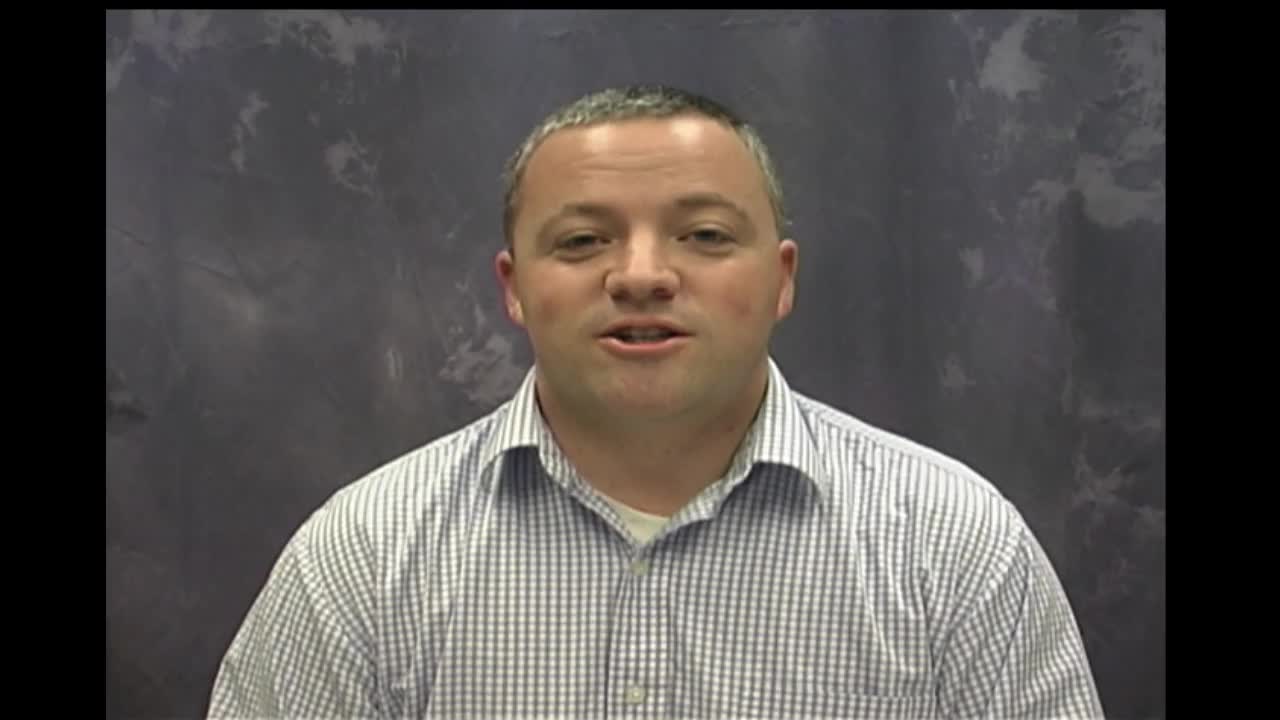
|
| |
-
ECE 3890 - Internship Credits: (2)
Typically taught:
Fall [Full Sem]
Spring [Full Sem]
Summer [Full Sem]
This is a core course that is required for the BS Engineering degree. ECE 3890 can be taken a maximum of three times for a total of six credits, but only two credits count toward the major. The student will need department approval before being allowed to register. Prerequisite: Permission from the department.
 
|
| |
-
ECE 4010 - Senior Project I Credits: (2)
Typically taught:
Fall [Full Sem]
Spring [Full Sem]
Students will be required to complete a 200-hour engineering project in a team environment. Project management and problem solving techniques will be emphasized. Topics to include goal setting, developing milestone charts, writing contracts, conducting research, project design and construction, testing and analysis, project documentation, and design review presentations. Prerequisite: Permission from the department.
 
|
| |
-
ECE 4020 - Senior Project II Credits: (2)
Typically taught:
Spring [Full Sem]
Fall [Full Sem]
A continuation of Senior Project I. Students will be required to complete a significant engineering project in a team environment. Project management and problem solving techniques will be emphasized. Topics to include goal setting, developing milestone charts, writing contracts, conducting research, project design and construction, testing and analysis, project documentation, and design review presentations. Prerequisite: ECE 4010 .
 
|
| |
-
ECE 4100 - Control Systems Credits: (4)
Typically taught:
Fall [Full Sem]
Topics related to control theory, analysis, and testing of systems in the time domain, frequency domain and state space. Lecture and lab combination. Prerequisite: ECE 3110 and ECE 3210 .
 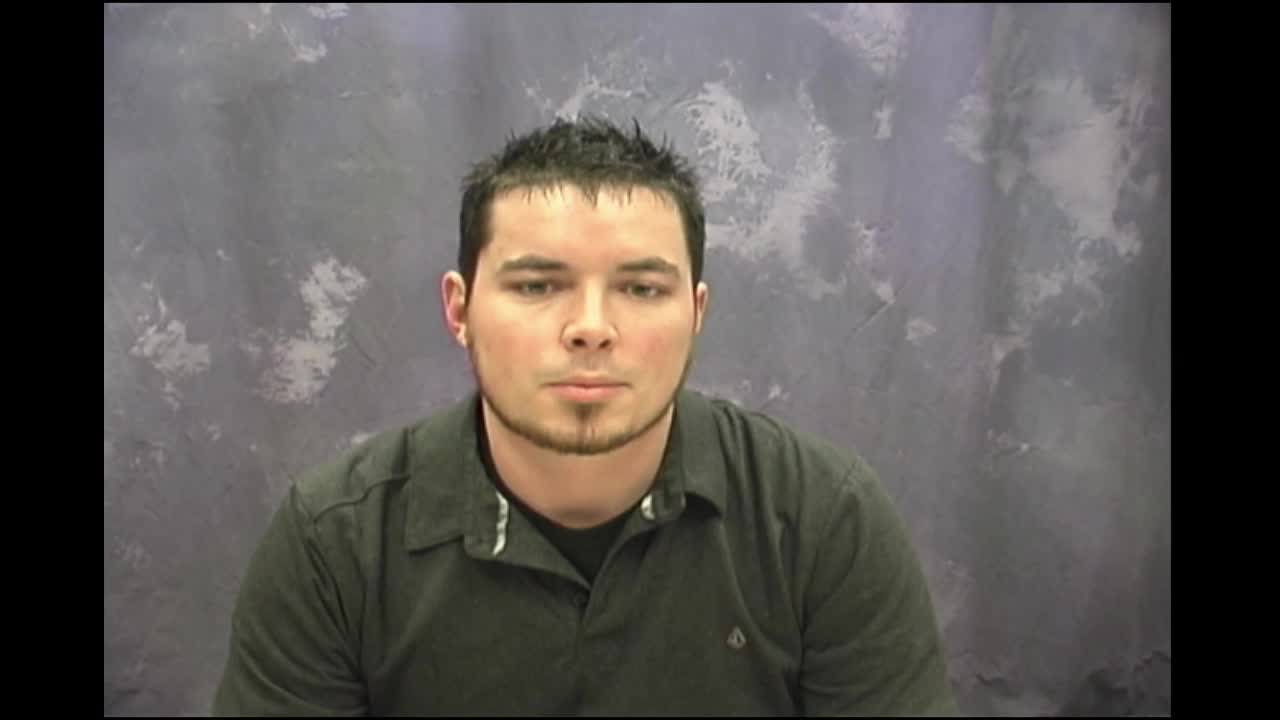
|
| |
-
ECE 5110 - Digital VLSI Design Credits: (3)
Typically taught:
Fall [Full Sem]
Introduction to Digital VLSI design. Includes the development of standard cell library of common CMOS circuits. Use of hardware description language and CAD tools for the design and simulation of custom large-scale digital systems. Students will understand the impacts and tradeoffs from speed, power consumption, and thermal properties of large-scale custom ICs. Prerequisite: ECE 3610 .
|
| |
-
ECE 5120 - Advanced VLSI Design Credits: (3)
Typically taught:
Spring [Full Sem]
Design of stable asynchronous VLSI systems. Course includes design, modeling, synthesis, optimization, and verifcation of asynchronous circuits and large-scale systems. Students will develop custom asynchronous libraries and utilize them for system design utilizing CAD programs. Prerequisite: ECE 5110 .
|
| |
-
ECE 5130 - Advanced Semiconductor Devices Credits: (3)
Typically taught:
Spring [Full Sem]
Introduction to advanced semiconductor physics and devices. Topics include carrier transport theory, energy band diagrams, PN junctions, metal-semiconductor junctions, BJTs and MOSFETs. Study of current semiconductor process technologies and discussion of off-roadmap technologies. Prerequisite: PHYS 2220 and ECE 3110 .
|
| |
-
ECE 5210 - Digital Signal Processing Credits: (3)
Typically taught:
Fall [Full Sem]
Spring [Full Sem]
Theory, application, and implementation of digital signal processing (DSP) concepts, from the design and implementation perspective. Topics include: Fast Fourier transforms, adaptive filters, state-space algorithms, random signals, and spectral estimation. Prerequisite: ECE 3210 .
 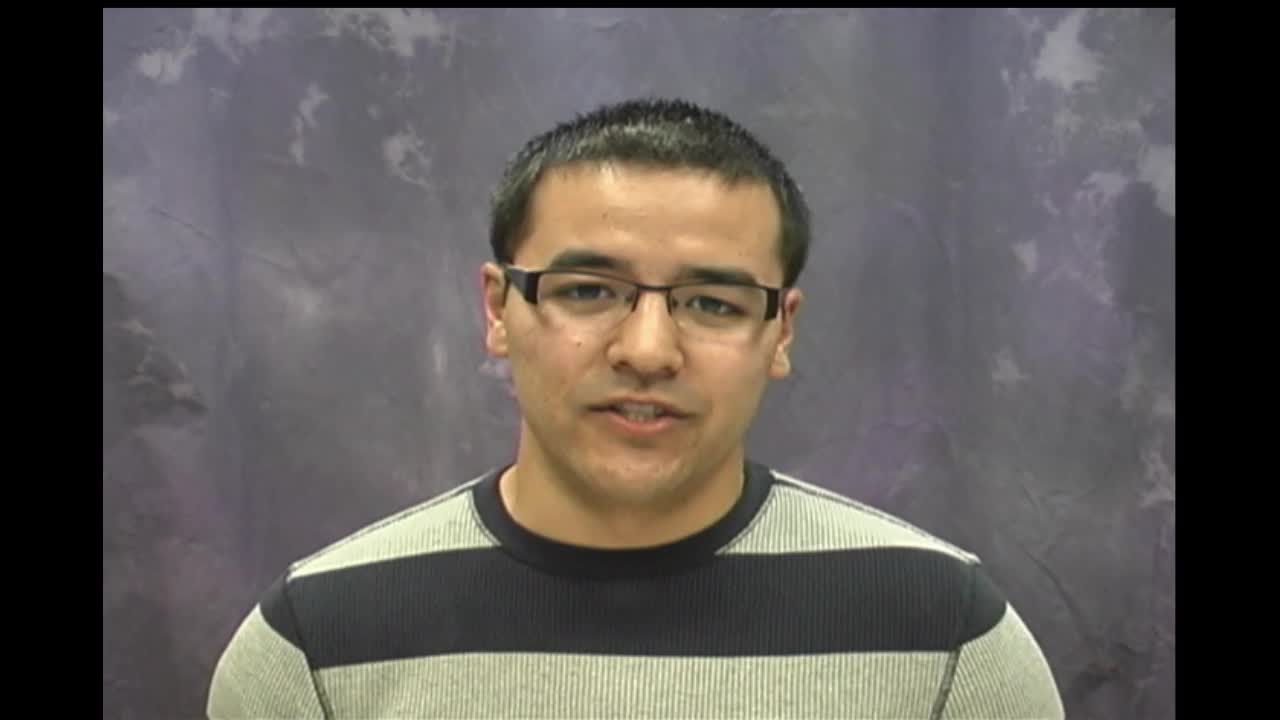
|
| |
-
ECE 5220 - Image Processing Credits: (3)
Typically taught:
Spring [Full Sem]
Advanced image processing theory and methods. Topics include digital image formation, transformation, filtering, enhancements, segmentation and morphological processing. Lectures, computer assignments and project (including term paper). Prerequisite: ECE 3210 .
|
| |
-
ECE 5310 - Electromagnetics II Credits: (3)
Typically taught:
Fall [Full Sem]
Spring [Full Sem]
A study of intermediate electromagnetic issues common to circuits, systems, and communication networks. Prerequisite: ECE 3310 .
|
| |
-
ECE 5410 - Communication Circuits and Systems Credits: (3)
Typically taught:
Spring [Full Sem]
A study of communication circuits, modulation and decoding theory, spectrum usage, networks, and protocols. Prerequisite: ECE 3210 and MATH 3410 .
 
|
| |
-
ECE 5420 - Digital Communication Credits: (3)
Typically taught:
Fall [Full Sem]
This course provides an in-depth coverage of the theory, analysis, and design of digital communications systems with an emphasis on advanced topics related to wired, wireless data communication and the physical networking layer. Topics include QPSK, QAM, PAM, CSMA/CD, SONET, ADSL, and/or MACAW. Spread spectrum concepts such as FHSS, DSSS, OFDM, MIMO and/or cooperative communication techniques may be included. Students will develop Matlab based models to emulate the concepts. The course will include group projects as well as individual assignments. The course would be beneficial particularly to students who are interested in doing work/research in fields related to communications, networks, and signal processing.
|
| |
-
ECE 5510 - Power Systems Credits: (3)
Typically taught:
Spring [Full Sem]
A study of AC and DC power systems and machines, including single and 3-phase power, power factor and correction, transformers, synchronous and induction machines, DC motors, power transmission lines, and analysis of power flow and faults. Lecture and Lab combination. Prerequisite: ECE 2260 . Prerequisite/Co-requisite: ECE 3310 .
|
| |
-
ECE 5710 - Real-Time Embedded Systems Credits: (4)
Typically taught:
Fall [Full Sem]
An advanced course on real-time embedded system design. Topics include task concurrency, scheduling paradigms, synchronization, resource access control, and inter-process communication. Lecture and Lab combination. Prerequisite: ECE 3710 .
|
| |
|
| |
-
ECE 5900 - Special Topics Credits: (1-4)
A one-time special study course designed to introduce a new relevant topic that is not covered in the Electrical & Computer Engineering programs. Lecture and lab combination. Laboratory activities support the selected course topic. A maximum of four credits can be counted for the Electrical & Computer Engineering programs.
|
| |
-
ECE 6010 - Design Project Credits: (2-6)
Students are required to complete a substantial engineering design project. Students must demonstrate proficiency in research, design, analysis, project planning, implementation, testing, presentation and documentation. Students receive T (temporary) grades until their final design review, after which these grades are changed retroactively. Students must be enrolled in ECE 6010 at the time of their final design review. This course may be repeated. Prerequisite: Permission from the department.
|
| |
-
ECE 6110 - Digital VLSI Design Credits: (3)
Introduction to Digital VLSI design. Includes the development of standard cell library of common CMOS circuits. Use of hardware description language and CAD tools for the design and simulation of custom large-scale digital systems. Students will understand the impacts and tradeoffs from speed, power consumption, and thermal properties of large-scale custom ICs. Prerequisite: ECE 3610 .
|
| |
-
ECE 6120 - Advanced VLSI Design Credits: (3)
Design of stable asynchronous VLSI systems. Course includes design, modeling, synthesis, optimization, and verifcation of asynchronous circuits and large-scale systems. Students will develop custom asynchronous libraries and utilize them for system design utilizing CAD programs. Prerequisite: ECE 3610 .
|
| |
-
ECE 6130 - Advanced Semiconductor Devices Credits: (3)
Introduction to advanced semiconductor physics and devices. Topics include carrier transport theory, energy band diagrams, PN junctions, metal-semiconductor junctions, BJTs and MOSFETs. Study of current semiconductor process technologies and discussion of off-roadmap technologies. Prerequisite: PHYS 2220 and ECE 3110 .
|
| |
-
ECE 6210 - Digital Signal Processing Credits: (3)
Theory, application, and implementation of digital signal processing (DSP) concepts, from the design and implementation perspective. Topics include: Fast Fourier transforms, adaptive filters, state-space algorithms, random signals, and spectral estimation. Prerequisite: ECE 3210 .
|
| |
-
ECE 6220 - Image Processing Credits: (3)
Advanced image processing theory and methods. Topics include digital image formation, transformation, filtering, enhancements, segmentation and morphological processing. Lectures, computer assignments and project (including term paper). Prerequisite: ECE 3210 .
|
| |
-
ECE 6410 - Communication Circuits and Systems Credits: (3)
A study of communication circuits, modulation and decoding theory, spectrum usage, networks, and protocols. Prerequisite: ECE 3210 and MATH 3410 .
|
| |
Page: 1 <- 4
| 5
| 6
| 7
| 8
| 9
| 10
| 11
| 12
| 13
| 14
… Forward 10 -> 37 |